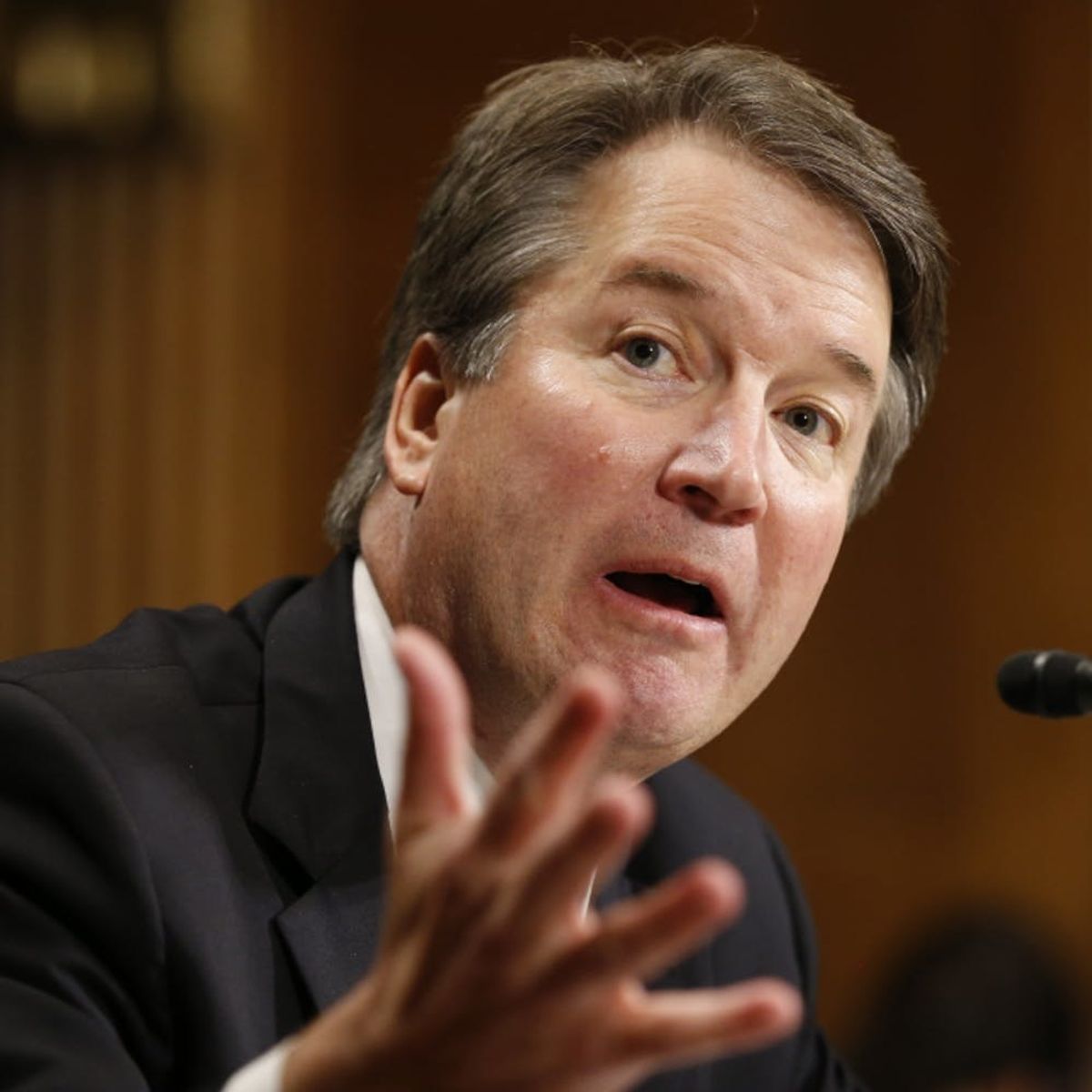The one good thing about this news cycle is the hope that it will impart an important lesson.
What I Hope the Boys I Grew Up With Learn From the Kavanaugh Stories

The Brit + Co Community Voices series aims to showcase a variety of viewpoints from our diverse audience in their own words. If you have a strong perspective, please email us [Subject: B+C Op-Ed] at hello@brit.co.
As allegations against Supreme Court nominee Brett Kavanaugh dominate the news cycle and his defenders continue to peddle harmful myths about sexual assault and survivors, I’ve found myself exhausted. It’s exhausting to hear bad faith debates about sexual assault, whether it happens, and whether survivors lie, often between people who are simply incapable of the basic empathy requisite to believe women’s stories. And it’s been especially exhausting for me and other women and survivors who see ourselves so clearly as the girls on the receiving end of the sexual harassment and violence alleged against people like Kavanaugh and his friends, when we were in high school ourselves.
But truth to be told, there is something I’m grateful for in all of this: the Kavanaugh news is unavoidable, with last week’s testimonies from Kavanaugh and his accuser, Dr. Christine Blasey Ford drawing nearly unprecedented viewership, and I’m glad the boys I grew up with can’t avoid it.
I’m glad they’re now forced to witness and understand how long their words and actions will stay with the girls they tormented and abused in high school. Now adult women who may have moved on, those girls may have grown to lead incredibly fulfilling lives, yet will carry the scars of teenage boys’ cruelty for life.

Among the boys I grew up with, one forcibly coerced me into a sexual encounter but still joined in the harassment I faced for my sexuality. Others routinely called my house and parents to make crass, invasive jokes or commentary about my sexuality. Yet others shared degrading photos of me along with gendered slurs. None faced consequences or disciplinary action, to my knowledge.
It was particularly difficult for me to have conversations about my experiences and what I faced in school with my deeply conservative parents, or any of the adults in my life. No role model had never spoken with me about consent and, instead, exclusively talked about sex as a shameful act that only girls deserving of harassment would partake in. But even from the little bits my parents knew of my experiences, they were concerned enough to install a security camera on our porch and disconnect our family landline to avoid the prank calls at their peak, when I was 16.
Growing up, I was repeatedly advised by my friends to not speak up or report individuals in order to not come off as “crazy,” overly sensitive, or — God forbid, the worst thing a girl can be — uncool. In hindsight, I understand my friends — especially my female friends — were well-meaning, but it disheartens me to recall just how normalized this sort of treatment was and remains for girls and young women.

Certainly, one of the most heartbreaking truths for survivors and young women subjected to sexual harassment — much like the deeply hurtful “jokes” in Kavanaugh’s yearbook — is that these experiences, which stay with us for a lifetime, are often transient and forgettable to perpetrators. It may be that if Kavanaugh did commit the acts he’s accused of, he’s telling the truth about having no memory of the incidents.
Reporting experiences of sexual assault and harassment is so rare, for reasons that should be obvious as we watch how Kavanaugh’s accusers are being treated by the most powerful men in the country. Most perpetrators will never face consequences, and the majority of them go on to be repeat offenders. Abusers are arguably even less likely to face consequences when they’re younger, and their actions — no matter how cruel and trauma-inducing — can be shrugged off with the classic “boys will be boys” mantra. Credibility and who we perceive as sympathetic, whose experience we choose to prioritize, is often gendered; certainly, that starts as early as high school, if not earlier.
As a result, sexual misconduct has become normalized through lack of accountability and real consequences for abusers, which works arm-in-arm with the toxic environment of disbelief, shame, and intimidation that survivors know they will face in coming forward.
Today, the boys I grew up with are young men. As I catch glimpses of them on my social media feeds, having the time of their lives at prestigious universities, I hope they are watching what’s happening. I hope that just as this news cycle forces me to reflect on and confront past trauma, it compels them to think about what they did, said, enabled, and shrugged off or laughed at when they could have intervened. I hope what they take away from it all is that, no matter how much time has passed, no matter how much time ever passes, they still must take responsibility for their actions — and lack thereof. Because the consequences of their treatment of girls in their youths are lifelong for those they hurt, and those they allowed to be hurt.
(Photos by Michael Reynolds-Pool/Getty Images)



















